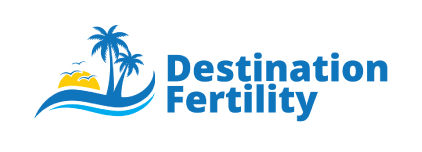If you are looking for the highest recommended IVF clinics abroad, it may be beneficial to also take a look at the organizations that regulate and accredit fertility centers around the world.
There’s no doubt that choosing a clinic, especially outside of your home country, can be overwhelming. Luckily, there are several organizations who regulate the safety, cleanliness, and effectiveness of fertility clinics and hospitals. Not all countries have national regulatory bodies specific to fertility clinics and fertility clinics in those locations often follow guidelines established but the organizations listed below.
The goal of this article is to make some sense of the important and credible organizations to search for in the world of fertility regulation, so you can choose the right IVF clinic for you whether abroad or in your home country.

The Best Organizations That Accredit Fertility Centers
Joint Commission (JCI)
The Joint Commission started in 1994 and is a non-profit that sets standards for healthcare facilities worldwide, with the ultimate goal of ensuring patient safety. Part of being accredited by the Joint Commission is accepting the possibility of random audits at any time in your healthcare facility. The Joint Commission will also do planned audits and the Commission accredits entire hospitals, specialties and specific fertility clinics. Check here to see which hospitals and fertility clinics are accredited. JCI accreditation is highly regarded globally. If your fertility clinic is JCI certified you know they meet the highest international standards of care, however JCI does not validate pregnancy rate data. A clinic must be operating for more than a year in order to apply for JCI accreditation and so many new clinics will be operating at the level of JCI standards while they apply for official certification.
ISO9001 or International Organization For Standardization (ISO)
Some clinics report this as a certification on their website. ISO is an acronym for International Organisation For Standardisation. This is a large international organization that has published 22,383 international standards in a variety of different industries. The organization was founded by answering the simple question of – what’s the best way to do this? Some of the more popular international standards include measurement, gas emissions and wi-fi networks. This provides consumer reassurance that products and services have been tested and are deemed safe. While ISO does not certify fertility clinics specifically, some clinics use ISO methods to standardize their lab procedures. However, this does not by itself indicate a high quality fertility practice and does not validate pregnancy data. Click here for more information about the ISO certification for medical laboratories.
Society for Assisted Reproductive Technology (SART)
SART is the primary organization of fertility clinics within the United States. To become a member of SART, clinics must adhere to certain standards of quality and have at least 20 egg retrievals in a year. As such, smaller and new practices in the US may not qualify to be SART members. SART was developed to collect and report data regarding IVF outcomes to the CDC due to federal reporting laws established in 1992.
SART data is used to identify fertility practices whose results deviate from the standard of care, however they advise on their website to not use the data to compare clinics as a patient.
SART member clinics agree to be inspected by other members for quality assurance. Most major insurance companies will only provide coverage at SART member centers. At present, full SART membership and oversight of quality is only available to clinics within the United States and United States territories and they do not accredit fertility centers outside the US.
College of American Pathologists (CAP)
CAP is an American certifying body for laboratories and is used by SART to monitor embryo lab quality. CAP is expanding globally and may be a mark of quality for fertility centers worldwide in the near future.
Human Fertilisation & Embryology Association (HFEA)
The Human Fertilisation & Embryology Association is UK’s independent regulator of human embryos and fertility treatment. They monitor, inspect and license fertility clinics in the UK. This is essentially the UK equivalent to SART, however it does not monitor or accredit fertility centers outside the UK.
European Society of Human Reproduction and Embryology (ESHRE)
ESHRE or the European Society of Human Reproduction and Embryology was started in Helsinki, where several professors consulted their colleagues about the need for a society that would stimulate the study and research in the field of reproductive medicine.
ESHRE holds annual meetings every year to do just that. Most of its members are European, although it attracts people from all over the world. If your clinic is a member of ESHRE, it’s likely that uphold high standards of care and focus on continued education for their clinic members. ESHRE has begun a program of ART Centre Certification for good clinical practice to establish quality assurance of IVF centers. This quality certification is only open to countries in Europe as defined by ESHRE. If you are going to a clinic located in an ESHRE member country, ask if they are ESHRE certified.
American Society of Reproductive Medicine (ASRM)
ASRM stands for the the American Society of Reproductive Medicine and is a professional society, not a regulating body. This organization is mostly for the United States and North America, although members from all over the world attend their annual meeting. The goal of the society is to be the nationally and internationally recognized leader for multidisciplinary information, education, and advocacy in reproductive medicine. Members of ASRM must demonstrate high ethical principles and specialize in infertility. You can read more about ASRM’s mission statement here. If your doctor is a member of ASRM, it’s likely they uphold high standards of care and focus on continued education for their clinic members.
Local and National Regulating Bodies
Some countries and districts have organizations that collect data and regulate fertility centers. There are too many to list here, but when considering a fertility clinic check their website for the name of the regulating body. If you cannot find one, ask the clinic about their system for regulation. Do your homework and make sure you are working with a doctor and a clinic that values safety and professionalism.
Making sure your clinic is properly accredited, whether in your home country or abroad, is necessary before undergoing any type of fertility treatment. If you are interested in checking out your options for treatment abroad, take a look at our list of recommended countries to research first.
Sincerely,
The Destination Fertility Team

